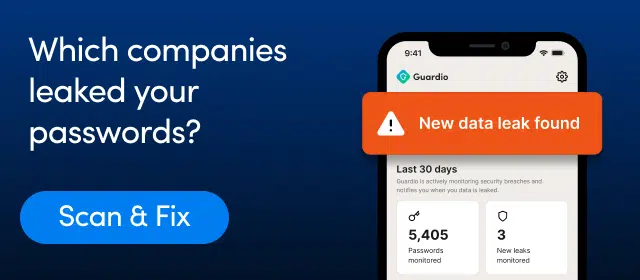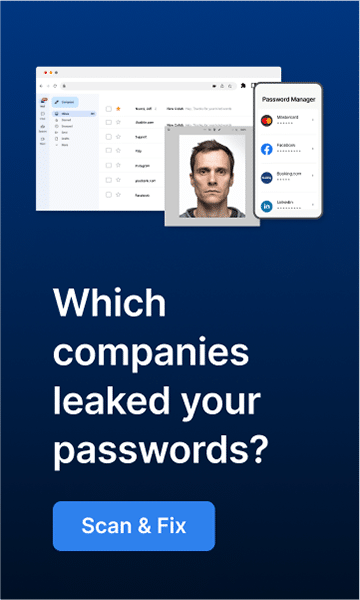Identity theft is one of the fastest-growing crimes in America, with over 17 million victims in 2018. It’s also a crime that’s easy to fall victim to—and hard to recover from once you have. That’s why it’s so important to know how to spot the signs that your identity has been stolen and act quickly if you suspect anything fishy. Here are some ways to detect when someone has used your personal information without your knowledge.
Your tax records are wrong.
From an employer, you might receive W-2 forms to report your income. If the W-2 is not sent to you, contact the IRS and ask for a copy. You can also request one online.
If you have been contacted by anyone claiming to be from the IRS or another government agency asking for money, hang up and call 1-800-908-4490 right away. The IRS will never call about taxes owed without sending first a letter through regular mail.
If you don’t receive any tax records at all, or if they’re wrong—for instance, if someone else gets a refund using your Social Security number—it could be an indication that someone has stolen your identity and filed taxes in your name without letting the IRS know who actually deserves it.
You’re not receiving your bills.
If you’re not receiving your bills, you may be a victim of identity theft. You should contact the company and ask them to resend the bill. If they say that they haven’t received payment, then you need to get a copy of the bill and prove that it was paid by showing them your canceled check or credit card statement that has been marked as paid. If they tell you they have never received payment from you, then this is definitely a sign that someone stole your identity!
Bills show up for accounts you didn’t open.
If you see charges on your bill that you didn’t make, there’s a good chance someone else is using your identity.
If you think someone has stolen your identity, get in touch with the credit bureau to place a security alert on your account. This will help prevent new accounts from being opened or existing ones from being used without your permission. If you find an account that has been opened fraudulently and reports it within 60 days of when it was created (or 90 days if over $5,000), the credit bureau will contact the bank or company and have them freeze any activity related to this account until further notice.
For more information about what happens after filing an identity theft report with one of these agencies, check out our guide here.
Unknown bank accounts appear on your credit report.
If you see an unknown bank account on your credit report, that’s a clear sign of identity theft to look out for. If you can’t remember opening the account and it isn’t in your name, contact the bank right away to have them investigate whether or not someone else has opened an account in your name.
If you do have an account, check to see if it’s in your name or someone else’s. If it is in someone else’s name, contact the bank immediately and ask them which of their employees are using their own information as identification when applying for credit cards and loans—and then report those employees to whoever monitors fraud at this institution (generally a law enforcement agency).
Credit score suddenly drops.
A sudden drop in your credit score can be a sign that someone has stolen your identity. The number and types of accounts you have, how long you’ve had them, and whether they’re paid on time all contribute to the calculation of your credit score. If someone opens new accounts using your personal information or fails to pay off loans appropriately, it can lower your score and make borrowing more difficult for you down the road.
Your identity may also be stolen if you suddenly see applications for new lines of credit in addition to existing ones—but only if these requests come from creditors who have never before contacted you about opening an account with them (for example, a mortgage company).
There’s a debt collector calling about an account you don’t recognize.
If you get a call from an unknown debt collector and they’re asking for payment on a debt that doesn’t seem familiar, don’t pay it.
If you do recognize the debt and are willing to pay, ask them to send you a copy of the bill. If this happens, make sure that even after paying it off, you keep all copies of bills sent to you by the collector (and keep them as long as possible).
You get rejected for credit or loans.
If you are rejected for credit or loans, ask the creditor why. You can verify your identity with a credit bureau. If it turns out that someone else has opened a new line of credit in your name, contact the FTC and file an identity theft affidavit.
The sooner you notice that your identity has been stolen, the easier it is to deal with it.
The sooner you notice that your identity has been stolen, the easier it is to deal with it. If you’re not sure if your identity has been stolen and would like a professional opinion, contact one of these services:
- Consumer Credit Counseling Service (CCCS)
- National Foundation for Credit Counseling (NFCC)
- Identity Theft Resource Center
Conclusion
Identity theft is a serious crime that can have devastating consequences. By knowing what to look out for, you can stop thieves from stealing your identity before they do too much damage and recover more quickly if they already have.


